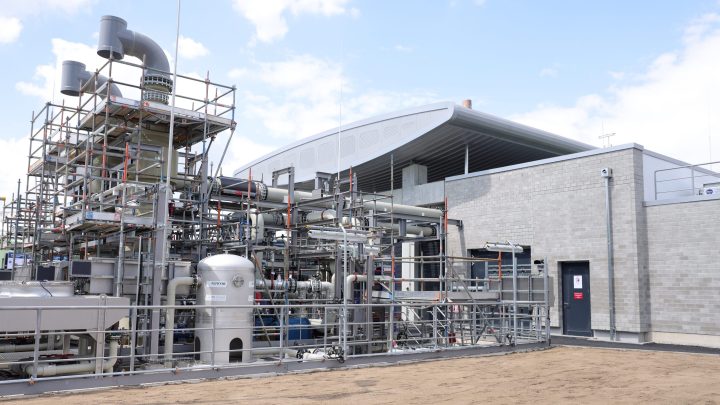
The Biden administration is investing in hydrogen hubs, but roadblocks remain
The Biden administration is investing in hydrogen hubs, but roadblocks remain

The Biden administration is making a bet that hydrogen fuel will help bring the American economy to net-zero carbon emissions by 2050.
It’s investing $7 billion in hydrogen hubs around the country to produce so-called “clean hydrogen.” Plus, new federal subsidies and tax incentives are meant to encourage private investment and a market for hydrogen fuel.
The promise of hydrogen fuel is that it could cut emissions in industries like trucking and manufacturing that have proven most difficult to decarbonize. It’s a lot of pressure for an industry that’s barely off the ground.
“The new uses of hydrogen that we hope to see are still in their infancy,” said Aaron Bergman, a fellow with the think tank Resources for the Future.
The main thing holding hydrogen fuel back is its cost, he said. “Unless there’s additional incentive to sort of bridge this price difference between fossil fuels and hydrogen, there’s very little reason to use hydrogen right now.”
The new hubs, Bergman added, will look for more cost-effective ways to produce hydrogen fuel and federal incentives will help create a market for it.
But building the infrastructure to support this new economy — like production plants, pipelines and storage facilities — won’t come cheap, per Scott Nyquist, a senior advisor with McKinsey.
“Inflation is driving up the cost in a way that is unexpected,” he said.
Supply chain issues affecting the industry have stubbornly lingered since these incentives were first introduced, Nyquist said. Plus, interest rates have soared.
“So, therefore, the revenues that you need to get from these projects to make them work for a business need to be much higher,” said Nyquist, adding that there’s a fear that the available subsidies aren’t enough to make those projects pencil out.
Then, there’s the industry’s personnel problem, pointed out Eugene Holubnyak, director of the Hydrogen Energy Research Center at the University of Wyoming.
“We do have workforce that knows how to deal with hydrogen, but it is still limited,” he said.
Even with the labor market cooling off, building a specialized workforce from scratch won’t be easy. Whether hydrogen energy lives up to its promise, Holubnyak said, depends on how quickly the brand new industry can scale up.
There’s a lot happening in the world. Through it all, Marketplace is here for you.
You rely on Marketplace to break down the world’s events and tell you how it affects you in a fact-based, approachable way. We rely on your financial support to keep making that possible.
Your donation today powers the independent journalism that you rely on. For just $5/month, you can help sustain Marketplace so we can keep reporting on the things that matter to you.

















